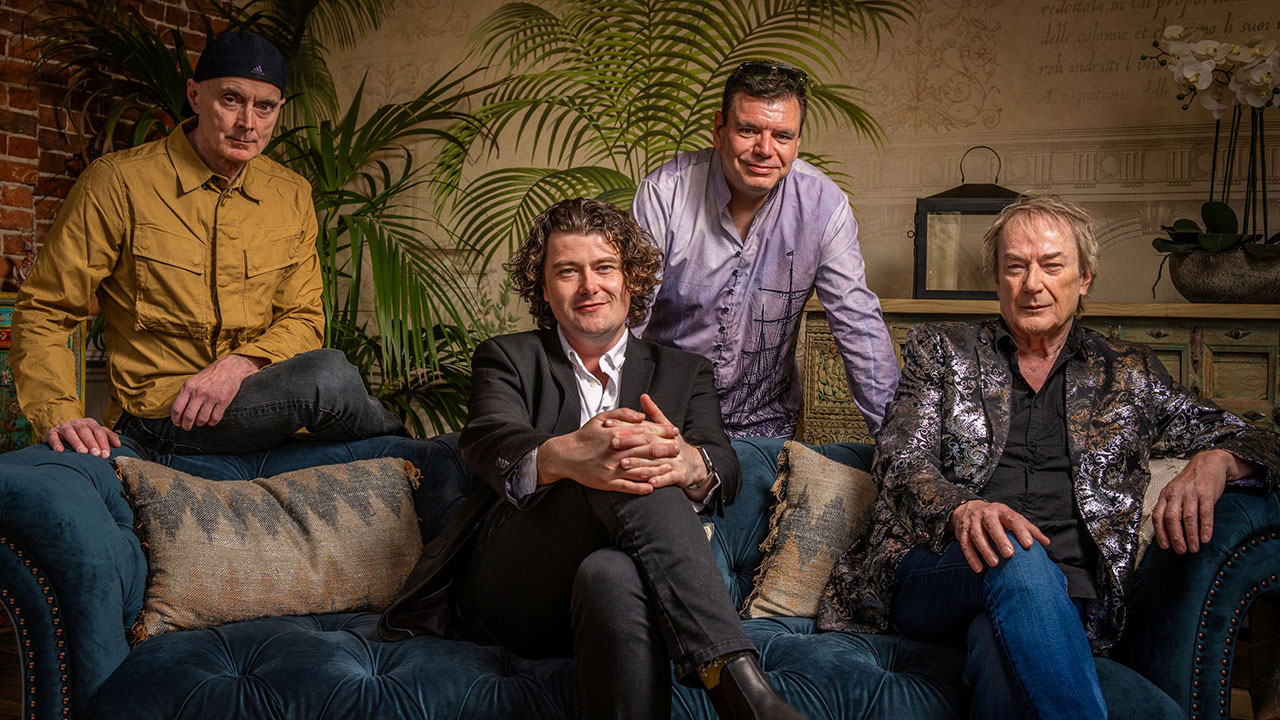“Some people would like us to be doing the Son Of Snow Goose until we drop… people just don’t want you to change, but change is inevitable”: Andy Latimer’s unreleased Camel music
Veteran band leader on having “reams and reams of material and some of it may be good”

Camel last released an album in 2002, but the absence of new records has never been to do with a dearth of material. In 2015 leader Andy Latimer told Prog about the huge amount of music he’d written but hadn’t unveiled.
“I never take anything for granted. I’m always thinking, ‘Is this going to be my last tour?’, ‘Are my hands still going to be working next year?’ I suffer from arthritis in the hands and that is a constant daily challenge. But I’m still here, I’m having regular check ups – you’ve got to look at the pluses,” says Andy Latimer, laughing.
The guitarist’s phlegmatic view towards illness is born from having being diagnosed in 1992 with Polycythemia Vera, a disease of the bone marrow. An announcement that it had progressed to Myelofibrosis, a rare form of bone marrow cancer, was made in 2007.
Latimer was initially given 20 months to live, but it turned out that predictions of his demise were premature. After “nearly being killed off by chemo”, he was given a bone marrow transplant and started producing the correct type and quantity of blood cells again. “They basically give you somebody else’s immune system,” he explains, “and often what happens is that you inherit whatever’s in their genes rather than what’s in your past, because there’s no arthritis in my family.”
Latimer was determined to continue as a musician and spent long and often painful hours practising. “I was having to develop a new kind of vibrato as I was getting too much pain in my hands and at times I thought, ‘I’ll never be able to do this again’. Sometimes you have to take stock, take the dog for a walk, have a think, and come back and try again.”
Camel’s comeback with a new line-up took place a decade on from their 2003 Farewell Tour, and for Latimer it was a daunting task. The first date was at Harrogate Royal Hall on October 19, 2013. In these unforgiving times, the concert was, of course, filmed and uploaded, and YouTube footage shows the guitarist looking visibly moved by the group’s reception. Latimer hasn’t seen it but remembers the occasion vividly.
“It was a pretty stressful time for me,” he recalls. “I was very anxious and unsure of myself, wondering if I’d remember everything and if I could get through it. The audience were just amazing, really uplifting. They were full of love and support, and after the third or fourth gig I was in my stride.
Sign up below to get the latest from Prog, plus exclusive special offers, direct to your inbox!
“A lot of our audience are a similar age and they are the people who are still buying CDs,” he continues. “People under 50 aren’t buying CDs. They are very supportive and they realise that if they don’t, we don’t exist. Many people think all musicians are wealthy and that the record company are ripping them off.”
Latimer was delighted to pick up the Lifetime Achievement Award at the 2014 Prog Awards and is currently sorting through new material for the band’s upcoming summer tour, which culminates in Camel headlining the Prog stage at the first ever Ramblin’ Man Fair in Maidstone, Kent, taking place in late July. So has he plans to release more music as Camel?
“Definitely,” he answers. “I’m still writing every day and I’m helping the rest of the band on their projects.” Keyboard player Ton Scherpenzeel, bass guitarist Colin Bass and drummer Denis Clement are all working on their own music. “But I’m so critical of my work that it’s a hindrance, because I get bored quickly. I’ve got reams and reams of material and some of it may be good, but I get bored with it after a about three months.
“The music I’m working on at the moment is very diverse. So I could put out several albums, but if I put one out, it would just be all over the shop, with different styles. I’ve written about five albums which are not going to see the light of day because I’ve grown out of them. If I still like it after six months I’ll put it out as I think there’s a chance that someone else will like it.”
In over four decades of musical restlessness is there a hallmark or signature that runs through his music?
“The only thing I would say is that is has to have melody somewhere,” he replies. “Melody has always been the strongest thing about Camel, so that’s the thread that runs through it.”
Camel’s performances of The Snow Goose in 2013 were accompanied by a re-recording of the piece, “faithfully recorded with tasty arrangements and enhancements”, according to the group’s Camel Productions. The recording was initially available at venues on a tour that culminated with a sold-out show at London’s Barbican Hall in October that year. It has since been given a general release and while it is beautifully executed, with a more spacious sound than the original, it’s hardly essential. It has, however, been rather cheekily repackaged with new artwork that misses off the ‘Music Inspired By…’ in the title.
Latimer jokes that at his age there is a lot more past than there is ahead, but after this period of consolidation by Camel, he’s clearly looking to the future.
“People might say, about some of my music, that ‘This isn’t progressive music’, but you have to try things for your own head, you have to grow,” he explains. “I’m sure some people would like us to be doing the Son Of Snow Goose and the Daughter Of Snow Goose until we drop. Some people just don’t want you to change, but change is inevitable.”
Mike Barnes is the author of Captain Beefheart - The Biography (Omnibus Press, 2011) and A New Day Yesterday: UK Progressive Rock & the 1970s (2020). He was a regular contributor to Select magazine and his work regularly appears in Prog, Mojo and Wire. He also plays the drums.

